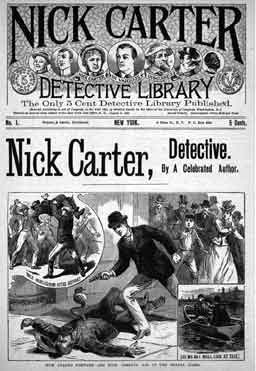The late Dave Lovewell wrote me in 2014 to describe a clipping he remembered seeing from the archives of the Superior Express about a robbery at the Lovewell Post Office in 1905. According to the story, Dave’s grandfather Stephen Lovewell and a young man named Calhoun were suspected of the crime and were both hauled off to Junction City to be bound over to federal court. None of this made sense to Dave, because a few years later his grandfather was director of a bank at Lovewell, a position usually reserved for upstanding citizens with spotless reputations - in those days, anyway.
Last week I found what seems to be a reprint of the original story from the Express, carried in a 1905 edition of the Courtland Register:
An attempt was made to rob the Lovewell post office last week, and two young men of that place, Ross Calhoun and Steve Lovewell were arrested by the United States marshal and taken to Junction City to stand trial on charge of the burglary.
I was immediately suspicious that someone was being careless with the truth, because the crime is referred to as both burglary and robbery, two entirely different things - the difference between entering a place unlawfully and sticking up the joint. It soon became apparent that there was plenty of sloppiness to go around. The names of the suspects, what they were charged with doing or attempting to do, and where they were taken to await judgment were all details which changed depending on which paper carried the story. Since local newspapers consisted of events gleaned by various regional correspondents, particulars sometimes differed from page to page within the same edition.
Page eight of Mankato’s Western Advocate agreed with the Superior paper that one miscreant was Ross Calhoun, but insisted that the other was one “Willie” Lovewell, and that both had been hauled off to Junction City on a charge of “attempting to break into the postoffice at Lovewell.” Coverage of the incident on page four concurred with its brother on page eight in some matters, but not all.
Frank Lovewell and Ross Calhoon, two young married men of the Lovewell country, were arrested last week by a government detective, charged with breaking into the Lovewell postoffice building about a month ago. They were taken to Leavenworth.
I’ve found no evidence that any paper ever printed a mea culpa* for naming Stephen Lovewell instead of his brother, although Mankato’s Jewell County Monitor did get around to offering a neat summary of the actual facts of the case in its February 23rd edition, an item apparently lifted from the Courtland Comet of a week earlier.
Frank Lovewell and Ross Calhoun returned home last Friday morning, free from the charge trumped up against them by the U. S. detectives. It seems that after holding the boys for trial, it developed that there was not evidence enough against them to justify even a preliminary examination. Perhaps the men who worked up the case were amateurs who had been reading Nick Carter and thought to break off a big chunk of glory by the capture of these desperadoes (?). We are glad to congratulate the boys on the happy ending of the farce.

It’s not clear whether anyone really attempted to break into the Lovewell Post Office in January 1905. The Post Office shared a building with other tenants, and one of them may have suffered a broken latch or window on a night when passersby remembered seeing Frank Lovewell and Ross Calhoun whooping it up. Investigators probably hoped to get the suspects to rat on each other by bringing them to unfamiliar turf and separating them. Frank Lovewell could have gotten twitchy under questioning, still sweating over the possibility that authorities would find out about the night 14 years earlier when he shot out the lights on Santa Fe No. 7 as it pulled out of Lovewell Station and thundered away on a wild ride toward Webber (see “The Night the Lights Went Out in Lovewell”).
William Frank Lovewell had returned from the Philippines at the end of the Spanish-American war to find his hometown still struggling to shake off the depression of the 1890’s. Stories about the great postal caper couldn’t have improved the young veteran's chances for employment. The 1905 census found Frank and his new bride Lulu living under his parents’ roof, while Ross Calhoun and his 18-year-old wife Ethyl lived with Lydia Hooker, possibly a relative but most likely a widow who took in boarders to make ends meet.
Late in the year Frank would move to northwest Wyoming to take a job with the railroad. There, separated from his home and his new family, he would make unwelcome news once again (see “Bumping Into Relatives”).
By the way, Nick Carter was once America’s most famous fictional detective, the hero of numerous radio shows, movie serials and even a 1972 made-for-TV movie starring Robert Conrad. First appearing in print in 1886, he got the drop on his British counterpart Sherlock Holmes by a year. While Sherlock is still a household name, Nick Carter has long since disappeared from the limelight. However, when he was in his prime, I’m sure that America’s Master Detective would have turned up his nose at this case.
*The Jewell County Monitor did set the record straight on February 9, while printing an expression of its regret about the confusion. Unfortunately, the very next day the Courtland Express reprinted the original version of the story, the one quoted at the top of this page.